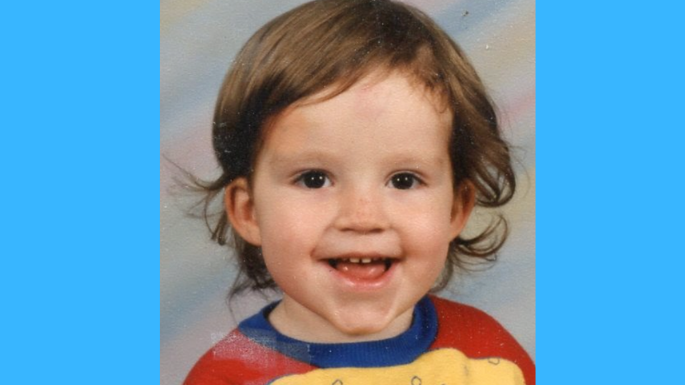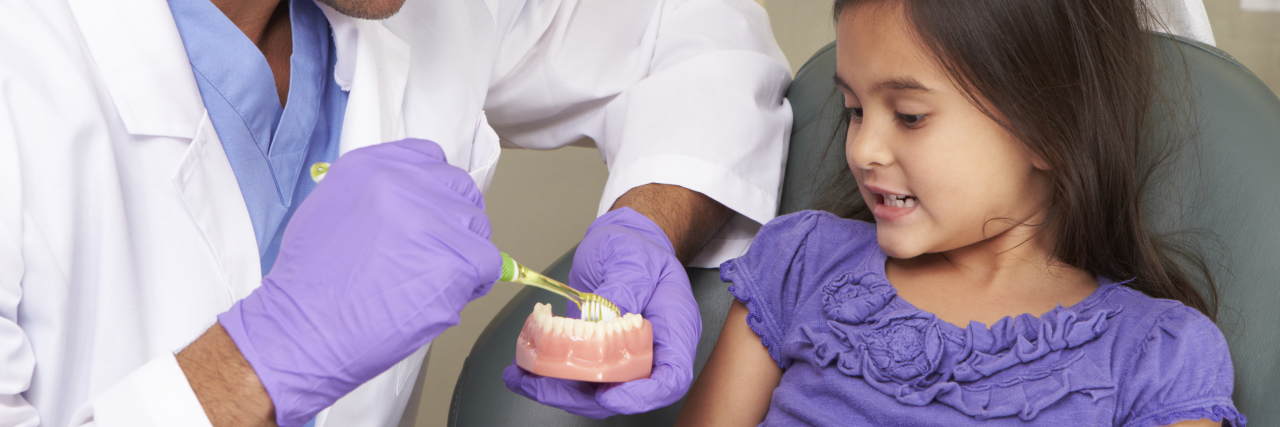Going to the dentist can be a trying experience for anyone. When you have autism, sitting still for long periods, loud noises, and other sensory struggles can be overwhelming. After I started talking at 2.5 years old, sensory issues became my biggest challenge. After getting some fillings recently, I wrote on my Instagram asking if our community would like to hear about my experiences, and the response was massive. Some parents reached out about how they were avoiding the dentist entirely for their kids and, while I understand the concern, foregoing the dentist when something may be wrong can lead to further health issues down the line. Many of these suggestions are still things I do today as an autistic adult.

1. Do your homework.
My parents found the perfect pediatric dentist for me from a recommendation from our pediatrician. If you do a Google search (dentists+autism), you can often find multiple reviews from parents’ experiences with dentist offices. You can find a resource guide listing 200+ autism-friendly dentists here.
2. Prepare before the visit.
My parents would talk to me about why I was going there, why it was necessary, and always tried to include a reward for after I was done. This was helpful to avoid any uncertainty. You may consider a social story or a visual schedule. If you do, try to make it personalized based on your loved one versus one with the name of another child. You can create some straightforward social stories via colorful template creators like canva.com or simply by using a PowerPoint template. You may call the dental office and see if you can tour the office before the actual day or see if they have a virtual tour of the office on their website.
3. Split the appointments.
When I was going to the dentist for the first time, my parents would make appointments in 30 minute intervals versus an hour. While not all dentists may offer this, those who have previous experience working with autistic children may provide similar accommodations.
4. Bring headphones.
Growing up, we didn’t have high-tech noise-canceling headphones like Bose, so my parents would bring earplugs. While not consistently effective, they did drown out some of the noise. It’s important to discuss your child’s challenges with their dentist early on. Try to find a recommendation in your local community for a dentist who has previous experience with autistic and/or SPD patients.
5. Avoid caffeine/sugar.
This is a recommendation I’ve given to anyone who struggles at the dentist. The less jittery I was, the more easy-going the visit was.
6. If applicable, see if your child’s OT and/or behavior therapist will go to the appointment too.
This isn’t something that helped me specifically. Still, from my work as a professional speaker and disability advocate, I’ve heard about countless families doing this if the dentist is willing, as the therapist can suggest things to help.
7. Visuals can be helpful.
I’d sometimes be able to watch cartoons or sports while the dentist was working. While some dentists may not allow this, especially if they need the child to be attentive, having something in the background helped me feel more at ease. If the dentist has a TV, you may ask the dentist ahead of time if they can play one of your child’s favorite programs.
8. Presume competence.
My dentist always talked to me instead of talking to my parents. That helped me establish trust, especially during any uncertainty I was feeling during a procedure.
9. Be literal.
Having a dentist who understood I didn’t understand sarcasm that well was beneficial. He would break down what he’d be doing in steps, and any instructions were novice to help me better understand.
10. Have a complete team that understands the challenges.
Strong communication between the dentist and his staff was helpful. It always felt like he and his assistant had a complete understanding of my sensitivities.
Note: I get many questions about whether I received any form of sedation and/or anesthesia, and I did not.
What would you add to this list?
This story originally appeared on Kerrymagro.com.
Getty photo by Monkey Business Images.

